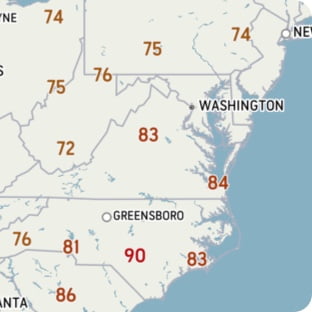
heat warning in effect Temperatures reaching 30 degrees Celsius combined with overnight lows near 18 degrees Celsius are expected for the next 2 days. A period of very warm and humid weather is expected. Conditions will be cooler near coastal areas. Time span: continuing until Wednesday evening. Minimum temperature tonight: 18 degrees Celsius. Maximum temperature Wednesday: 30 degrees Celsius (Humidex near 35). Locations: western and central Nova Scotia except cooler along coastal areas. ### Heat warnings are issued when very high temperature or humidity conditions are expected to pose an elevated risk of heat illnesses, such as heat stroke or heat exhaustion. For more information: https://www.canada.ca/en/health-canada/services/climate-change-health/extreme-heat/how-protect-yourself.html https://www.canada.ca/en/health-canada/services/climate-change-health/extreme-heat/who-is-at-risk.html Information is provided on the Nova Scotia Department of Health and Wellness website at https://novascotia.ca/heat-related-illness/. Please continue to monitor alerts and forecasts issued by Environment Canada. To report severe weather, send an email to NSstorm@ec.gc.ca or post reports on X using #NSStorm. Take action to protect yourself and others – extreme heat can affect everyone’s health. Determine if you or others around you are at greater risk of heat illness. Check on older adults, those living alone and other at-risk people in-person or on the phone multiple times a day. Watch for the early signs of heat exhaustion in yourself and others. Signs may include headache, nausea, dizziness, thirst, dark urine and intense fatigue. Stop your activity and drink water. Heat stroke is a medical emergency! Call 9-1-1 or your emergency health provider if you, or someone around you, is showing signs of heat stroke which can include red and hot skin, dizziness, nausea, confusion and change in consciousness. While you wait for medical attention, try to cool the person by moving them to a cool place, removing extra clothing, applying cold water or ice packs around the body. Drink water often and before you feel thirsty to replace fluids. Close blinds, or shades and open windows if outside is cooler than inside. Turn on air conditioning, use a fan, or move to a cooler area of your living space. If your living space is hot, move to a cool public space such as a cooling centre, community centre, library or shaded park. Follow the advice of your region’s public health authority.












